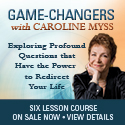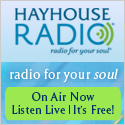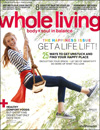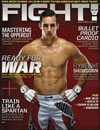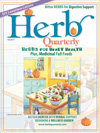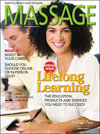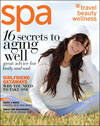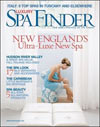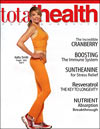The Reiki Digest for September 27, 2006: Illness as Healing
Aaaaaaaaa-choo!
Please excuse the sneezing and coughing -- I've been sidelined the past few days with what seems to be a classic case of the common cold.
As colds go, this one has seemed particularly intense, with all the usual cold symptoms plus a fever of 101 Fahrenheit that made it difficult to keep up with my usual routine, not to mention the extra activities on my schedule for the week. Fortunately, the fever has passed, and I trust that the rest of the symptoms will be gone in a few more days.
Before I began studying and practicing Reiki, I might have called it "a terrible cold." Then I had a teacher who told us how she decided to change the way she thought about the colds she gets each winter by changing the way she described them. Instead of a "terrible cold," she decided to start referring to it as "a wonderful cold." Changing that one word immediately made her feel better, even as her symptoms persisted.
As I continued my studies not only in Reiki but in other natural healing modalities, I learned other ways of describing, and thinking about, what I had always considered ordinary illnesses. So far, every form of natural healing I've encountered sees illness, at least some illnesses, as a form of healing. The only healing modalities that don't include that concept are those that focus on suppressing symptoms rather than getting to the root of the problem.
To a natural healer, a cold or other illness can be described as a clearing, or a "healing crisis." As blocked energy begins to move, the body reacts, and so does the immune system. In the short term, it may seem like a bad thing, but ultimately it's a good thing because the body uses the illness or "healing crisis" to rid itself of toxins and get back in balance.
That makes sense to me, but it didn't stop me from repeating the all-purpose New Yorker's mantra when I felt the first symptoms over the weekend: "This is the last thing I need right now. This is the last thing I need right now. This is the last thing I need...." Once I acknowledge my situation, I stopped whining and did my best to think, "a wonderful cold...a wonderful cold...a wonderful cold" instead.
Did I sneeze any less? I can't say for certain. Nor can I prove that I'm recovering any faster than I would if I'd called it "a bad cold." But at the very least, I learned more from the experience by looking at it in a positive light. When I felt I didn't have the energy to do my usual morning qigong workout, I substituted Reiki self-care instead. I let the fever burn calories instead of my daily aerobics, and when I did my yoga I concentrated on relaxing, restorative poses rather than the sun salutations I would normally do. I continued my daily meditations, even though they were frequently interrupted by coughing. And when I realized it would not only be unwise but ill-mannered to show up sick for the appointments on my calendar, I made other arrangements and even asked a friend or two for help. And then I went back to bed, alternating Reiki self-care with sleep. Of course, I also asked Reiki-practitioner friends to send some Reiki my way.
Fortunately I've recovered enough to sit back down at the computer, just in time for this week's edition of The Reiki Digest. Also fortunately, in cyberspace, no one can hear you sneeze, or catch your cold for that matter.
This week's Reiki Roundup begins, sadly, with our first Reiki obituary.
Roseann Kasayka
(1941-2006)
Reiki Master Sister Roseann Kasayka, Ph.D., of Parma, Ohio, died September 18 at age 65, the Cleveland Plain Dealer reported. In addition to teaching Reiki, Kasayka specialized in working with Alzheimer's patients and other people with dementia, introducing the use of spiritual and music therapies. Her person-centered care programs spread to dementia-care centers around the world. The newspaper reported that when Kasayka had surgery for endometrial cancer nine years ago, she "performed Reiki on her surgeon's hands before he operated on her."
Kasayka also introduced a method of helping people with memory loss orient themselves by placing personal items and family photos at the entrances to their rooms, so they could find their way home despite their afflictions.
Kasayka studied Reiki in New York while she was earning her Ph.D. in music therapy at New York University.
In other Reiki news this week, we find Rochester, New York, physician Dr. Brian Dailey, who is also a Reiki Master. Dailey recommends, and offers, Reiki as adjunct therapy for patients on chemotherapy, to help with the side effects.
And in Toledo, Ohio, another physician, Dr. Ken Mapes, along with his wife, Kathy, a nurse, have converted their home into a treatment center offering mainstream as well as complementary healing methods, including Reiki.
In Sedona, Arizona, Reiki Master Chris Bein is selling Reiki-infused crystals that she says also contain the powerful energy many people believe is centered in Sedona's red rock landscape.
In Singapore, recovering breast cancer patients are using Reiki to help with their rehabilitation; and in Port Hope, Ontario, Canada, a wellness spa also offers Reiki and other stress reduction modalities to breast cancer survivors.
In India, Reiki turns up in a hard news story about the July Mumbai train bombings, as a suspect being interrogated told investigators that the bombers had considered claiming to be Reiki practitioners so that they could get closer to "important places and people."
In Uniontown, Ohio, Vicki and Ed Caswell are using Reiki as well as chemotherapy in an effort to save the life of their 10-year-old dog, Sadie, who has cancer.
As usual, the International House of Reiki has done another podcast of The Reiki Show. This week, Reiki Masters Bronwen and Frans Stiene talk to British Reiki Master Julie Lian about her work with Reiki in a doctor's office.
Update: Several Master Teachers have volunteered to answer questions for our new Ask the Masters feature, so if you've got a Reiki question, please post it as a comment if you're reading this on our web site, or as a reply to this e-mail if you're a subscriber. Also, let us know whether you want your name included with your question. (It is now possible to post comments here anonymously, although moderation is still in effect to keep out the spam.)
Finally, this week's Celeb-Reiki. Best known for her role as Harry Potter's movie aunt, actress Pam Ferris plays a Reiki practitioner in the upcoming film "Children of Men," the story of a future in which, for some reason, no more babies are being born. When one young woman turns up pregnant, Ferris's character uses Reiki along with other modalities to help her and her unborn child.












